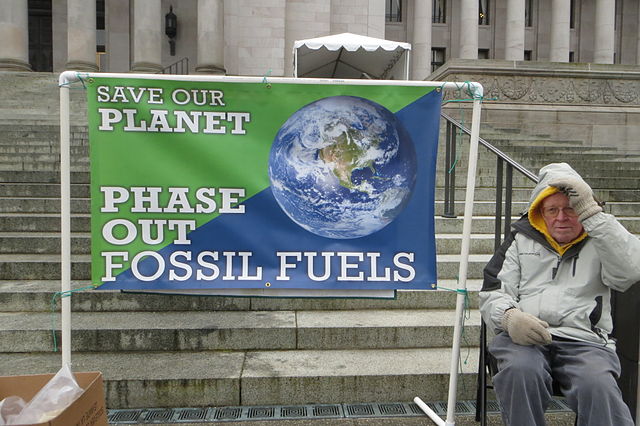The hydrogen economy is an umbrella term for the roles hydrogen can play alongside low-carbon electricity to reduce emissions of greenhouse gases. The aim is to reduce emissions where cheaper and more energy-efficient clean solutions are not available. In this context, hydrogen economy encompasses the production of hydrogen and the use of hydrogen in ways that contribute to phasing-out fossil fuels and limiting climate change.
Some projected uses in the medium term, but analysts disagree
Hydrogen pipelines
Hydrogen gasification plant for Belinka Perkemija [sl], 2015
A Mercedes-Benz O530 Citaro powered by hydrogen fuel cells, in Brno, Czech Republic.
Fossil fuel phase-out is the gradual reduction of the use and production of fossil fuels to zero, to reduce deaths and illness from air pollution, limit climate change, and strengthen energy independence. It is part of the ongoing renewable energy transition, but is being hindered by fossil fuel subsidies.
The 2010 Deepwater Horizon oil spill discharges 4.9 million barrels (780,000 m3).
Natural gas well in Germany
Protest at the Legislative Building in Olympia, Washington. Ted Nation, a long-time environmental activist, beside protest sign.



![Hydrogen gasification plant for Belinka Perkemija [sl], 2015](https://upload.wikimedia.org/wikipedia/commons/thumb/e/e3/Soteska_Ljubljana_Slovenia_-_factory.JPG/640px-Soteska_Ljubljana_Slovenia_-_factory.JPG)



